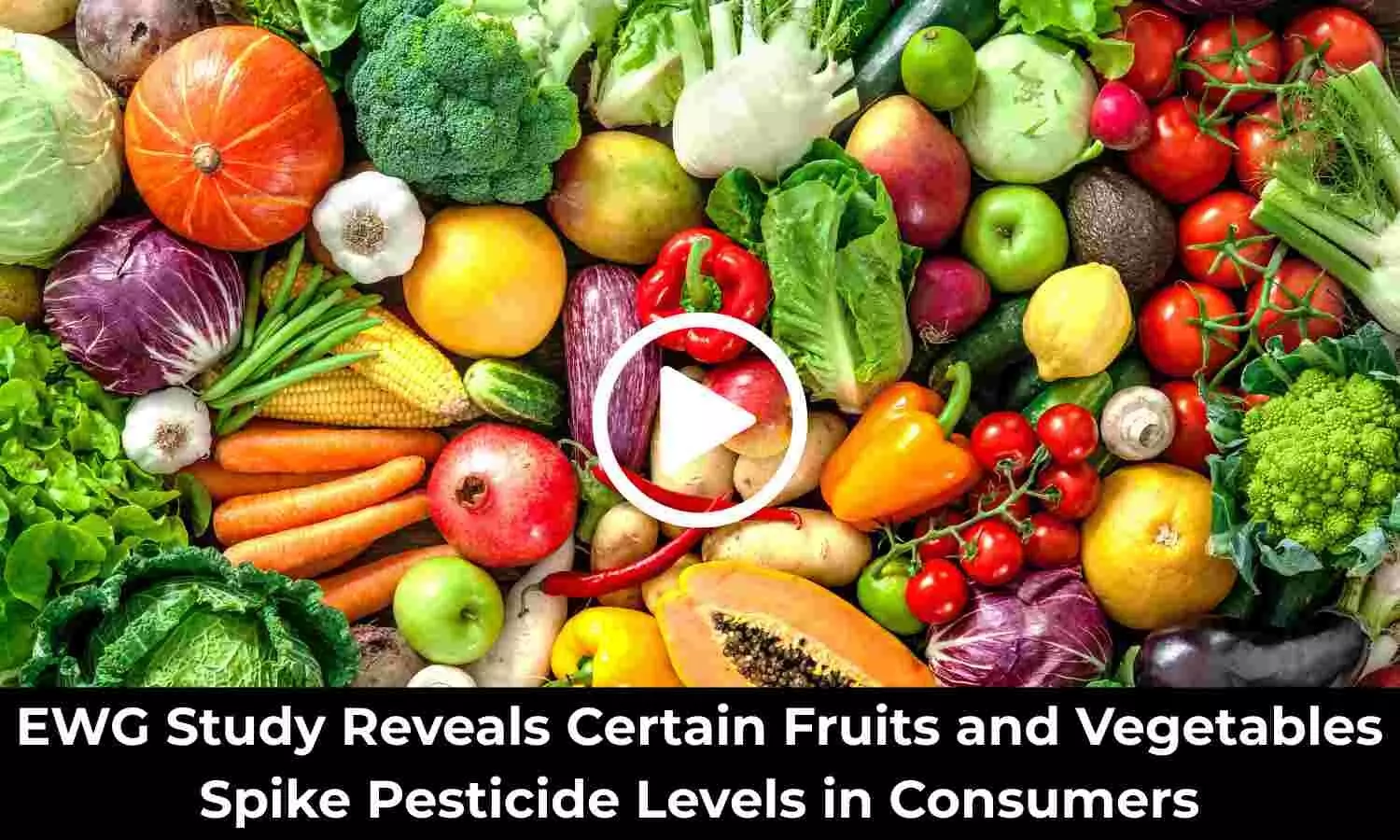EWG Study Reveals Certain Fruits and Vegetables Spike Pesticide Levels in Consumers
- byDoctor News Daily Team
- 25 September, 2025
- 0 Comments
- 0 Mins

Consuming some types of fruits and vegetables can increase the levels of harmful pesticides detected in people's bodies, according to a new peer-reviewed study by Environmental Working Group scientists. The study was published in theInternational Journal of Hygiene and Environmental Health. Pesticides have been linked tocancer, reproductive harm, hormone disruption, andneurotoxicityin children. Residues of these chemicals are often detected on produce, creating exposure concerns for consumers. The new study may help inform future research into how dietary exposure to pesticides through fruit and vegetables might affect human health. Participants who consumed more fruits and vegetables with higher levels of pesticide residues – like strawberries, spinach and bell peppers – had significantly higher levels of pesticides in their urine compared to those who ate mostly produce with lower levels of pesticide residue. These findings highlight how diet is a driver of pesticide exposure and provide a foundation for future research into how that exposure might affect human health over time. EWG created a “dietary pesticide exposure score” to estimate people’s exposure based on the fruits and vegetables they ate, and pesticide levels on those produce. Pesticide amounts on produce were determined by how often and how much of each chemical was detected. EWG also factored in the concentration and toxicity of each pesticide. Scientists then compared the exposure scores to 15 pesticide biomarkers, or indicators, in participants’ urine for three major classes: organophosphates, pyrethroids, and neonicotinoids. The results revealed a clear link between the specific produce people consumed and the levels of these pesticides that were detected in their urine, varying based on what they ate and the pesticides on those fruits and vegetables. The study’s authors suggest that their methodology for estimating pesticide exposure from fruits and vegetables could give regulators and other researchers a powerful tool to assess real-world exposures and better safeguard vulnerable populations, particularly children and people who are pregnant. Ref:Temkin A et al. A cumulative dietary pesticide exposure score based on produce consumption is associated with urinary pesticide biomarkers in a U.S. biomonitoring cohort; International Journal of Hygiene and Environmental Health: 10.1016/j.ijheh.2025.114654
Disclaimer: This website is designed for healthcare professionals and serves solely for informational purposes.
The content provided should not be interpreted as medical advice, diagnosis, treatment recommendations, prescriptions, or endorsements of specific medical practices. It is not a replacement for professional medical consultation or the expertise of a licensed healthcare provider.
Given the ever-evolving nature of medical science, we strive to keep our information accurate and up to date. However, we do not guarantee the completeness or accuracy of the content.
If you come across any inconsistencies, please reach out to us at
admin@doctornewsdaily.com.
We do not support or endorse medical opinions, treatments, or recommendations that contradict the advice of qualified healthcare professionals.
By using this website, you agree to our
Terms of Use,
Privacy Policy, and
Advertisement Policy.
For further details, please review our
Full Disclaimer.
Recent News
NEET 2025: TN Health extends round 3 choice fillin...
- 31 October, 2025
DME Gujarat extends PG Ayurveda, Homeopathy round...
- 31 October, 2025
Decade-Long Study of PCI and CABG in Left Main Cor...
- 31 October, 2025
Daily Newsletter
Get all the top stories from Blogs to keep track.


0 Comments
Post a comment
No comments yet. Be the first to comment!